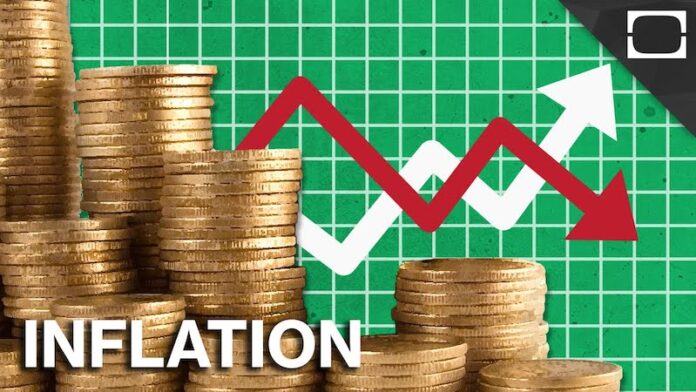An economist, Dr Bright Eregha, has urged the Federal Government to address supply constraints in productive sectors of the economy, responsible for inflation increase.
He said on Wednesday in Lagos that the scarcity of foreign exchange remained a challenge affecting the growth of the productive sectors.
Eregha, who teaches Economics at the Pan Atlantic University, said “The government must improve the business climate and ensure that the foreign exchange market is more stable.
“The volatility currently been experienced is negating the purchase of production inputs and acquisition of machinery,” he said.
Eregha noted that the inflation rate that the country was contending with was more of cost push, saying it must be tackled decisively.
He also said that the high cost of logistics was another factor responsible for the rise in inflation rate.
“The cost of logistics is becoming too exorbitant, and worsened by the price of petroleum in the international market.
“Conveying commodities have really surged, affecting the overhead of many businesses,” he said.
Also, Mr Okechukwu Unegbu, former President, Chartered Institute of Bankers of Nigeria (CIBN), said that the Federal Government should endeavour to guarantee adequate security for farmers across the country.
“Particularly for small holder farmers to cultivate and edequate their farm produce to major food market in urban areas.
“An uninterrupted food supplies will check the food induced inflation while, post harvest losses should be more efficiently managed,” he said.
He noted that the apex bank should extend the anchor borrowers schemes, so as to achieve food security in the country.
“Allowing more farmers to join the schemes across states will enable it to have more impact in the economy.
“Then the country could achieve self-sufficiency over time,” Unegbu said.
Inflation rate rose 15.92 per cent in March , a 0.22 per cent rise compared to 15.7 per cent recorded in February, according to the National Bureau of Statistics (NBS).
In its Consumer Price index (CPI) the Bureau said the rise in food index was due to increase in prices of bread and cereals, tubers, fish, meat, oils and fats.
NBS said: “In March 2022, the CPI, which measures inflation, increased to 15.92 per cent on Year- on- Year basis. This is 2.25 per cent lower than the 18.17 per cent recorded in March 2021.
This means that the headline inflation rate slowed down in March 2022 when compared to the same month in the previous year.




